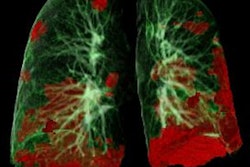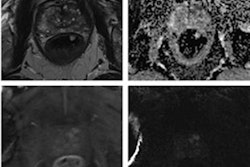Dear AuntMinnieEurope Member,
Traditionally, many radiology professionals have regarded 1.5-tesla scanners as the workhorses of clinical MRI, but manufacturers have made steady progress with 3-tesla units over recent years. The decision about which type of scanner to choose will depend on individual circumstances, but purchasers often face a genuine dilemma over whether a higher field-strength scanner is worth the extra investment.
Against this background, any direct comparison between the two systems is bound to generate considerable interest, and in our MRI Community, you can read about a new German study that does exactly this.
Regular readers will know that columnist Dr. Chris Hammond is never afraid of tackling a complex ethical issue. In his latest article, he discusses how a value can be ascribed to a patient's life. Don't miss his thought-provoking analysis.
CT lung cancer screening suffers from a lack of long-term data, according to the skeptics, but the evidence in support of the technology is gradually building. Analysis from a seven-year U.K. trial involving nearly 4,000 participants was published last weekend, and you can find out more in the CT Community.
Also, below the article and in our Forums section, make sure you read the controversial viewpoint of Dr. Fred Grannis, clinical professor of surgery at City of Hope National Medical Center in Duarte, California.
In other news, the first set of results have been reported for the Italian Society of Medical Radiology's national online test for the self-evaluation of screening mammography interpretation. They appear to confirm the value of the scheme and the importance of regular training for breast readers, but screening pioneer Dr. László Tabár thinks the test needs improving. Go to the Women's Imaging Community to learn more.
Last but not least, Swiss clinicians are supporting a second PET/CT scan before radiotherapy treatment, especially when there are delays of more than four weeks after initial scans in patients with advanced head and neck squamous cell cancer.



















